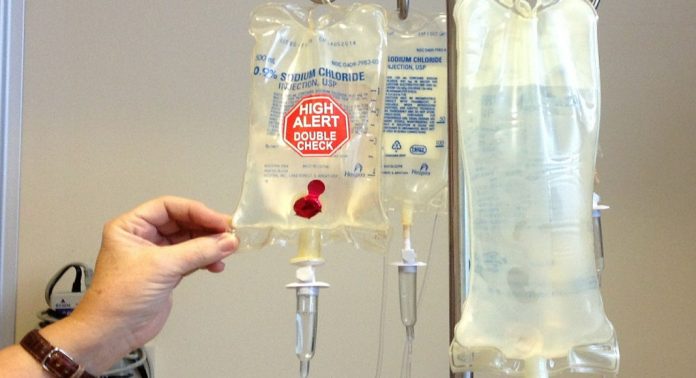
Women with triple-negative breast cancer who have faults in their BRCA genes see much better results on the chemotherapy drug carboplatin than standard treatment, according to new clinical trial reports.
It was found that women with advanced triple-negative breast cancer in possession of a BRCA mutation were twice as likely to benefit from carboplatin as docetaxel, the current standard of care for these patients.
With this trial, a major change to international clinical practice guidelines will be coming by ensuring women with triple-negative breast cancer who are young or have a family history are considered for BRCA testing, meaning the best possible treatment is given.
Triple-negative breast cancer
There are limited treatment options for triple-negative breast cancer because of its inability to respond to standard hormone therapies or targeted drugs like trastuzumab. Advanced stages of the disease are usually treated with chemotherapy; however, response rates remain low.
Researchers designed the trial to compare the effectiveness of docetaxel with carboplatin – a drug co-discovered at the Institute of Cancer Research (ICR), UK – as these two treatments affect cancer cells in different ways. Carboplatin creates a specific form of damage to a tumour’s DNA, exploiting a weakness in some triple-negative breast cancers’ DNA repair machinery.
After analysing the 376 women with advanced triple-negative breast cancer, regardless of BRCA gene status, researchers found that the two drugs worked similarly well.
However, among the 43 women studied who also had BRCA gene faults, those who received carboplatin were twice as likely to respond to therapy as those given docetaxel.
Tumours shrank in 68% of the patients treated with carboplatin, but only 33% of the women on docetaxel.
Response to carboplatin
Professor Andrew Tutt, professor of breast oncology at the ICR, said: “Our study has found that women with triple-negative breast cancer who have BRCA1 or 2 mutations are twice as likely to respond to carboplatin as they are to standard treatment.
“It strongly suggests that many women with triple-negative breast cancer should be considered for testing for faults in the BRCA genes so those who test positive can benefit from carboplatin. Using this simple test enables us to guide treatment for women within this type of breast cancer. I am keen for these findings to be brought into the clinic as soon as possible.”
The need for alternative treatments
Professor Judith Bliss, director of the Clinical Trials and Statistics Unit at the ICR, who led the management of the study, said: “Women with triple-negative breast cancer often only survive for one to two years after the cancer has relapsed and spread to other parts of the body, so there is an urgent need to find alternative treatments for this group of patients.
“Our study has shown that this doesn’t have to mean developing new drugs. We can use existing – and often cheaper, generic – drugs more effectively by targeting treatment based on weaknesses in individual patients’ tumours.”










In September 2017 I was treated with carboplatin and decetaxel for grade 3 triple negative metaplastic breast cancer.
I am very thankful for the research.